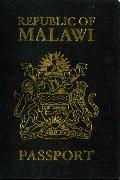Whose citizenship is it anyway?
IN 2000, when I turned 16 and was now eligible to travel on my own passport, I decided to apply for one. By this time, I had already been in and out of Malawi on several occasions, on either of my parents’ passports. You can understand my excitement at the thought of owning this document – the prestige among peers, the satisfaction of presenting it to border authorities and of course, the occasion to relish various immigration stamps and the memories they come with.
As it turned out, however, it was not as easy as it seemed. There were a number of significant obstacles that stood in my way.
Having been born in Mutare, Zimbabwe albeit to Malawian parents was the first hurdle. When I showed up at the Malawi Consulate in Harare to apply for a ‘travel document’ (emergency passport) that could enable me to make the one-way trip to Malawi to process my passport, I was told, unequivocally, that I was Zimbabwean and could, therefore, not be assisted. Sure enough, I was born in Zimbabwe but my parents are Malawians who had maintained their citizenship. Why could I not be Malawian as well?
 The irony of it all, of course, is that the Zimbabwean authorities themselves had always insisted I was Malawian. Soon enough, people with a backgrounds similar to mine were caught up in the sheer ludicrousness of the issue. The class of 1953, as my father calls the Federation of Rhodesia and Nyasaland, bestowed upon us a legacy – a painful one at that – whose consequences we do not fully appreciate as a nation.
The irony of it all, of course, is that the Zimbabwean authorities themselves had always insisted I was Malawian. Soon enough, people with a backgrounds similar to mine were caught up in the sheer ludicrousness of the issue. The class of 1953, as my father calls the Federation of Rhodesia and Nyasaland, bestowed upon us a legacy – a painful one at that – whose consequences we do not fully appreciate as a nation.
Zimbabwe president, Robert Mugabe, has previously described Malawians with heritages dating back to the Federation as “the totemless people of Mbare”. Now, Mbare is a high-density suburb in Harare that housed a lot of migrant workers from Malawi, then Nyasaland. A lot of these families have remained intact, in the same place and some have even expanded. As you know, in Malawi we do not have totems and do not address ourselves accordingly.
To be sure, that jibe from Mugabe was inspired by massive electoral defeats he was suffering in most of Zimbabwe’s urban areas, including Mbare, which left him in such desperation that he needed to resort to xenophobic utterances just to register his disappointment. And you thought the United States’ president-elect, Donald Trump, was doing something new!
In the township I grew up in, Dangamvura, it was not foreign (sic) to hear people speak about MaBhurandaya (people from Blantyre) or even Wenela, inspired by the Witwastersrand Native Labour Association (WNLA), a recruitment agency for migrant workers in South Africa. Such was the influence of Wenela that in 1967, three years into our Independence, Malawi and South African governments signed a treaty that would see closer cooperation in documenting Malawians living in South Africa and mostly working in the gold mines. To get to South Africa from Malawi, one had to pass through Southern Rhodesia (Zimbabwe), obviously.
In my case, I was time and again referred to as MuBhurandaya (one from Blantyre) among my peers and in the neighbourhood at large. To this day, jokes abound about my father as far as his speech intonation is concerned, especially when he speaks ChiShona, one of Zimbabwe’s vernacular languages. The inverse is true for me, when I speak ChiChewa. I have gotten better at it but if you were to speak to me in 2000, you might have literally died of laughter. For a period, then, I was stateless – not belonging to Malawi and not belonging to Zimbabwe either – until sanity prevailed and I was recognised, rightly so, as a Malawian national.
In February this year, I was at the mercy of the Immigration Office in Lilongwe. Not because of my citizenship status but for a passport renewal that just was not happening, despite paying for expedited services. The office, I was told, had no passport books and could not, therefore, process my application.
Here also, I encountered a lot of young Malawians planning their exits and escapes from Malawi because they could no longer tolerate what they had been subjected to by those in power – zero opportunity, zero empowerment and zero recognition. It was heart-breaking. A passport is a thing of pride, not an instrument to deny what should be the source of your pride. But I understood and empathised with them.
These memories came back to me in the aftermath of news that Malawi was harbouring a convicted Rwandan war criminal, Vincent Murekezi. But we had also done one better – we gave him citizenship and issued him with a Malawian passport to camouflage his identity and crimes.
That convicts like Murekezi can access full citizenship benefits and be defended as successful Malawian business people at the highest level by no less a person than the minister of Home Affairs herself is deeply troubling and worrisome. What does it say about the integrity of our domestic security and immigration systems?
There are hundreds of thousands of deserving Malawians who can’t access their citizenship rights. Millions more may be failing to obtain a passport because of various issues and institutional incompetency. Yet, when your country is prepared to go all out for a convicted war criminal in the face of all this dehumanisation, you need no reminder that you are utterly screwed!
Whose citizenship is it anyway?
